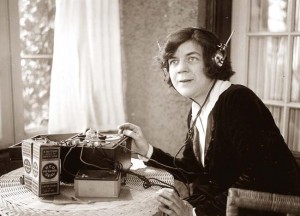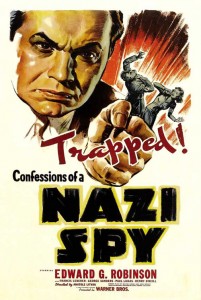“This sense that the FBI was omnipresent was its own kind of power.”-Tim Weiner. Enemies, 77
There are obvious benefits and outcomes that emerged from FBI surveillance. One was information. The first and foremost reason for surveillance was intelligence gathering. However, there is something else that interested me about the omnipresence of these FBI listening devices and informants. Were there any “Side Effects”? Were there any unforeseen benefits or detriments for the FBI? One of the most intriguing ones to me is the idea that knowing you are being watched alters behavior. How can we better understand this effect? What writings can we turn to?
David J. Garrow is one of the more prolific writers on the topic of FBI investigations and techniques during the 1950s and 60s. In a 1988 article, Garrow touches on the subject. He writes:
“With regard to informant’s presence, much more tough-minded consideration must be given to whether passive presence has had tangible effects, to how significant a number of instances of informant activism or agent provocateur behavior actually occurred, and to whether activists’ expectations of informers’ presence may really have been the most significant internal effect of all. Widespread suspicion of informant penetration provided fertile ground for accusations of betrayal whenever movement tensions led to angry, personal recriminations.”[1]
The figure that I find it most beneficial to turn to for these answers is French historian and philosopher Michel Foucault. Based on the ideas of British philosopher and social thinker Jeremy Benthem, Foucault dedicated an entire chapter of his book Discipline and Punishment: The Birth of the Prison, to the idea of the Panopticon, the round prison. The prison is a giant circle in which all of the cells face inward toward a giant tower. The tower’s windows are slated so even though the prisoners know they are being watched, they cannot see their surveyors. Foucault writes, “Hence the major effect of the Panopticon: to induce in the inmate a state of conscious and permanent visibility that assures the automatic functioning of power.” [2]
We see this principle unintentionally used by the FBI time and time again. The entire culture of the era was steeped in the understanding that FBI agents, informants, or wiretaps were out there and therefore, one must alter one’s behavior. Movies or popular stories such as 1951’s film I Was A Communist for the FBI, also helped to propagate this fear of FBI infiltration.
The paranoia was effective. One particularly interesting incident involved the American Communist newspaper The Daily Worker. On January 12, 1953, The Daily Worker accused the FBI of harassing its journalists and beseeched the attorney general to take action. The interesting fact however is that the FBI had not harassed any Worker writers. In fact, besides monitoring the publication with daily clippings, little surveillance had been conducted on the daily publication. In a memorandum from the Washington office to the New York office the author writes, “The (Communist) Part has evidently become so jittery that they decided to try to apply pressure on the Attorney General by accusing the Bureau of intimidation and the use of threats both of which are false. It is believed that we should ignore this attempt…in fact this should give impetus to the program as the Party is undoubtedly very much concerned over our successful penetration.” [3] Here we see the Panopticon in action, the fear of being watched overtaking the reality of the situation.
In fact, the prison as Foucault envisioned it, has one more comparison to Hoover’s objectives in the Second Red Scare. Foucault writes that within the construct of the surveillance tower, even the surveyors may be watched and monitored by their superiors. He writes, “In this central tower, the director may spy on all the employees that he has under his orders…he will be able to judge them continuously, alter their behavior, impose upon them the methods he thinks best.”[4]Again, the theory has analogous roots in the FBI structure. FBI special

FBI recruits, like those in this picture taken in 1947, were under almost constant surveillance by moles within their training groups.
agent William Sullivan joined the bureau in 1941 and eventually rose in the ranks to third in command of the entire organization. In his memoir The Bureau: My Thirty Years in Hoover’s FBI, Sullivan remarks that from the first day of training on, the threat of internal spies turning agents in for being overly critical of policy or for indecent behavior is perpetual.[5]
The knowledge of FBI presence for both citizens and lesser agents may have contributed to a considerable behavioral change, although substantiating that may be a very difficult task for historians. Either way, the idea of the Panopitcon should remain a very real and effective comparison to make when analyzing surveillance theory and the FBI during this era.
[1] David J. Garrow. “FBI Political Harassment and FBI Historiography: Analyzing Informants and Measuring Effects.” The Public Historian, Vol. 10, No. 4. (Autumn, 1988. Pp. 17.
[2] Michel Foucault, Discipline and Punishment: The Birth of the Prison. New York: Vintage Books, 1977. Pp. 201.
[3] Federal Bureau of Investigation. “The Daily Worker Internal Security” Mr. A.H. Belmont to Mr. J.E Dunn. (January 11, 1953). http://vault.fbi.gov/Daily%20Worker/Daily%20Worker%20Part%204%20of%205/view (accessed April 9, 2012)
[4] Foucault, 204.
[5] William C. Sullivan. The Bureau: My Thirty Years in Hoover’s FBI. New York: Norton, 1979. Pp. 19.



